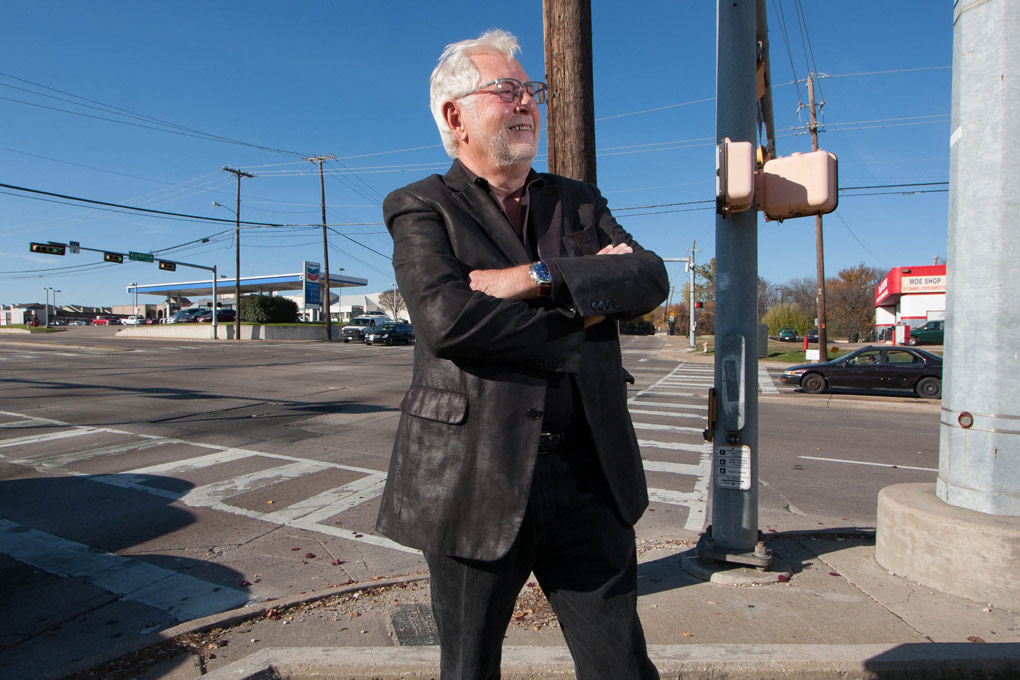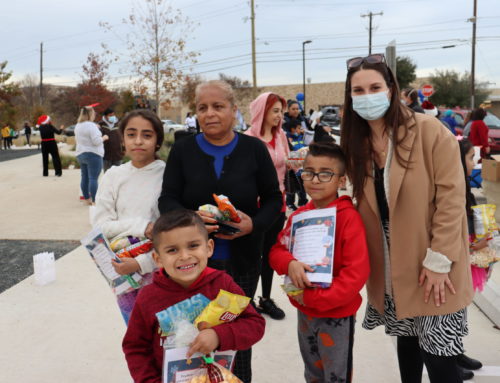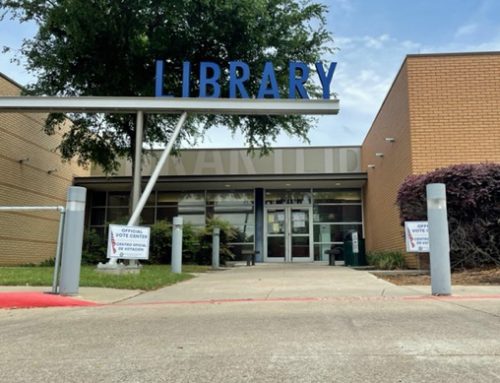That helicopter you heard last night over northeast Dallas, Lake Highlands and Vickery Meadow neighborhoods will be returning on a regular basis — that intel comes straight from Lake Highlands Area Improvement Association president Murray Morgan, who spoke publicly yesterday about crime in our neighborhood. He’s been speaking (both verbally and via social media and email) for years about the topic — see our recent Q&A with Murray Morgan (and photo of him snapped at the same location at which he stood for the TV cameras yesterday).
“[The helicopter] will last until crime comes down and stays down,” he says. “And not the two-week crackdown we see each summer.” (He’s referring to a 14-day warrant roundup-slash-drug- and prostitution-bust blitz that happens annually following the designation of Dallas prolific-crime hotspots. Police have told us they can make 200 some arrests during these efforts, but most are back on the streets before the paperwork is complete, and officers tell us it can take more time to see any real impact.)
Police confirm by way of a press conference announcing the formation of the new 170-officer Violent Crime Task Force “to reduce the increase in violent crimes.”
Through crime analysis, police say they have pinpointed five high-crime focus areas — two are in/near Lake Highlands. That is, Forest-Audelia at the northern tip of Lake Highlands and Vickery Meadow, our neighbors to the immediate southwest. (Other focuses are Ross Bennet, Hampton Ledbetter and Hatcher Scyene.)
Deputy Chief Paul Stokes serves as the commander of the new task force, formed in response to the recent increase in violent crime in Dallas following 13 years of decreasing violent crime, Stokes says.
“We believe deploying in these areas will have the greatest impact throughout the city,” Stokes says. “We will will monitor the crime, and we are very fluid if the needs change.” This is a call to action for citizens to be extra vigilant, he says.
Morgan and District 10 councilman Adam McGough spoke to the media following the official DPD press conference.
“We have been doing that for years,” Murray says of the call for vigilance, citing the behavior of his closest neighbors (Woodbridge, where he lives, for example).
“We are very vigilant because of this area. After we report [gunshots, suspicious activity, etc.] to the police, we post it on Facebook and Nextdoor, using social media to alert each other to the suspicious activity. The task force is not only for the neighborhood, but for the many many good people who live in these apartments here. I cannot imagine being with your children and hearing those gunshots [the ones we hear almost nightly in the not-so-far distance] right outside my door.”
In a story posted by the Dallas Morning News, Morgan promises to “hold them to it.”
Sidenote: Morgan and the Dallas Police Department have been using social media as a crime fighting tool for years now; they talked to us about it way back in 2011 for our feature story, “Facebook as the new front porch.”






